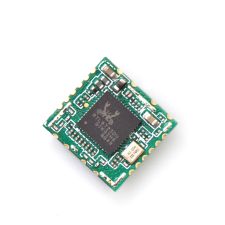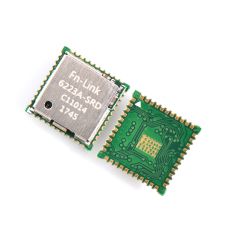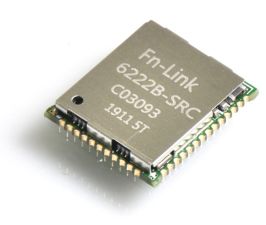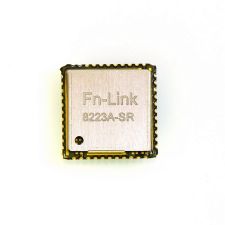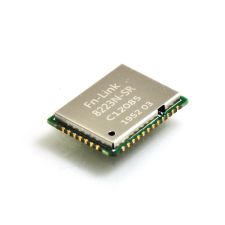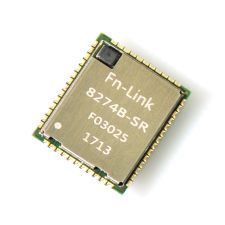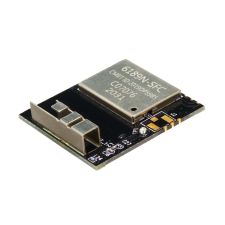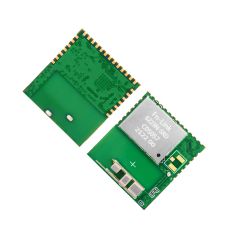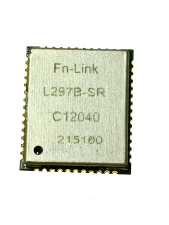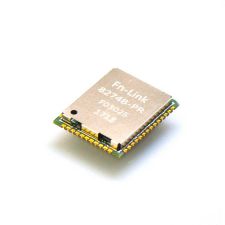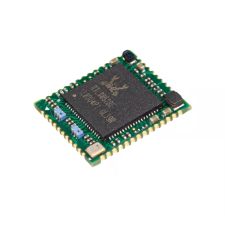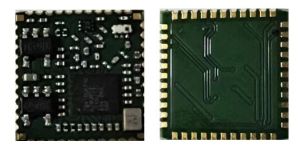Wi-Fi Radio Modules

A Wide Range of Wi-Fi Modules for Each Interface
Wi-Fi radio modules are offered in a large number of different versions. One of the most important selection criteria are the interfaces, which often depend on the type of the application processor, the required data speeds, the form factor, and the power dissipation. In recent years, PCIe, USB, SDIO as well as SPI and UART have become the widely accepted choices for Wi-Fi radio modules. The latter ones are often preferably used for IoT (Internet of Things) applications, because these do not require high data speeds (mostly not more than a few kbps) but provide low power dissipation and small form factor size.
Samples Contacts NewsUSB, SDIO and PCIe Interfaces
USB 2.0, on the other hand, offers significantly higher data rates and allows an equally space-saving integration with 4 lanes. At a gross data rate of 480Mbps (USB 2.0, high speed), the 802.11n standard can easily be used in a MIMO 2x2 operation (antenna data rate of 300Mbps). By contrast, the 802.11ac standard in a MIMO 1x1 configuration (antenna data rate of 433Mbps) is enough to push this interface (USB 2.0) to its limits.
SDIO is often preferred in industrial applications over USB because the interface is more reliable and stable at similar data rates.
PCIe Mini Card is by far the interface with the highest data rate and is therefore the preferred solution for the 802.11ac broadband standard, but also has the highest power dissipation rate and space requirements. Due to the PCIe Mini Card specifications, all modules are available with the same mechanical interface, which requires a 52-pin connector on the target hardware. Therefore, PCIe modules are mostly used in PC-based systems operating with Linux or Windows.
CODICO offers a wide range of Wi-Fi modules for each interface and each standard 802.11a/b/g/n/ac. Most of these modules support several antennas (MIMO: Multiple Input Multiple Output) to increase data rates or to allow for the use of the Rx- and Tx-Diversity technologies. While modules with USB, SDIO, SPI and UART are offered in MIMO 1x1 and 2x2 designs, the PCIe modules support multiple antenna systems up to a maximum of MIMO 4x4. For 802.11ac, CODICO even offers solutions with MU-MIMO 4x4 (MU:Multi User), a new technology that allows the simultaneous transmission of independent data streams to different clients. Many modules are CE, FCC, and IC certified and are available in commercial or industrial temperature ranges.
Here you can find further information about Wi-Fi Radio Modules.
Combo Wi-Fi Radio Modules
The abbreviation “Combo” is derived from the word “Combination”, and it indicates with respect to radio-modules the integration of two radios (Wi-Fi and Bluetooth) on a single module. As for many radio-modules, there is a wide range of types in the market with different interfaces, form factors, and supported standards. CODICO offers combo-radio-modules with PCIe, USB and SDIO interfaces in a very small form factor for the standards 802.11a/b/g/n/ac in combination with Bluetooth 4.2 + BLE.
Manufacturers & Contacts

8DEVICES
8DEVICES was founded in 2011 and is headquartered in Vilnius, Lithuania. It is a private holding company with now more than 110 employees. 8DEVICES focuses on the development and production of module solutions for Wi-Fi applications. Since 2016, they have been an official ADC (Authorized Design Center) partner of QUALCOMM with the license and experience to provide in-depth technical support for custom designs. In addition to Wi-Fi, 8DEVICES has also been offering PLC module solutions since 2022, all of which are also based on QUALCOMM technology.
Infos Samples
AMPAK TECHNOLOGY
AMPAK TECHNOLOGY is a specialist in Wifi, Bluetooth and GNSS radio modules. AMPAK's unique feature is its advanced packaging technology, which combined with SYNAPTICS' Wifi/BT/GNSS ICs, results in a very small form factor and low power consumption. The modules' interfaces range from SDIO. I²C, PCIe, USB and UART. M.2 2230 form factor is also available.
Infos Samples


COMPEX
COMPEX is a leading manufacturer of OEM and ODM solutions in the field of wireless communication and networking technologies. The company specializes in the development of PCIe Wi-Fi radio modules, embedded boards, and antennas, particularly for industrial applications.
Infos Samples

FN-LINK
FN-Link is specialized in the development and production of "low cost" and "small footprint" WiFi and combo radio modules. The latter solutions support Bluetooth in addition to WiFi.
Infos Samples

